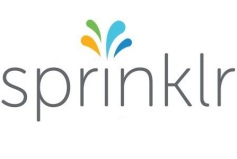Yelp  has agreed to license data and reviews to Sprinklr, a company that helps marketers track what consumers say about them on digital platforms.
has agreed to license data and reviews to Sprinklr, a company that helps marketers track what consumers say about them on digital platforms.
Marketers such as McDonald’s or Olive Garden, for example, use Sprinklr to see what customers are saying about them in a variety of venues, such as YouTube, Twitter, Instagram, Facebook, WeChat and more, all on a location basis. Other Sprinklr clients include Microsoft, Samsung, Nike and Havas.
The addition of Yelp’s extensive data should deepen the offering to marketers, ideally helping them understand what customers like and why they come back in a more precise way.
Source: AdAge






 igital Asset Holdings LLC, a start-up specializing in the blockchain technology for the financial services industry, announced on Wednesday that it has entered into business relationships with Accenture, Broadridge and PricewaterhouseCoopers to ensure faster adoption of its product.
igital Asset Holdings LLC, a start-up specializing in the blockchain technology for the financial services industry, announced on Wednesday that it has entered into business relationships with Accenture, Broadridge and PricewaterhouseCoopers to ensure faster adoption of its product. dent artists on TuneCore earned over $142 million in 2015, a 7% increase from 2014. TuneCore artists also earned $36.8 million from digital streams and downloads alone in Q4 2015.Publishing revenue for TuneCore artists was up 47% in 2015 and sync revenue up 57%, with placements in major feature films and network TV shows.
dent artists on TuneCore earned over $142 million in 2015, a 7% increase from 2014. TuneCore artists also earned $36.8 million from digital streams and downloads alone in Q4 2015.Publishing revenue for TuneCore artists was up 47% in 2015 and sync revenue up 57%, with placements in major feature films and network TV shows. Web searches, page visits, online purchases, tweets, SMS messages, emails, phone calls, photos, videos, GPS coordinates – this is the data that makes up our digital lives.
Web searches, page visits, online purchases, tweets, SMS messages, emails, phone calls, photos, videos, GPS coordinates – this is the data that makes up our digital lives. SourceAudio, a prominent B2B technology platform for music publishers, labels, broadcasters, production companies and creative marketing agencies, has announced the launch of its newest service, “SourceAudio Detect.”
SourceAudio, a prominent B2B technology platform for music publishers, labels, broadcasters, production companies and creative marketing agencies, has announced the launch of its newest service, “SourceAudio Detect.”